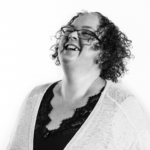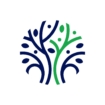10 Years of MOOCs in Education: Why MOOCs still prove relevant for our university today
“30,000 students are following a class with this prof today”, was the headline of the daily newspaper NRC on June 10, 2013. On the guiding picture you see Leiden University instructor Stefaan van den Bogaert prepare to record his video-lecture for the first Leiden MOOC ‘The Law of the European Union. An Introduction’. “When starting the online course, we had no idea what the effect would be, we were pioneering. During recording, one cannot see the students, only the red-light of the camera, but in fact the whole world is watching’ he expressed to Centre for Innovation in their annual report, when reflecting on his experience.
From this pioneering moment onwards, Leiden University has started to see the certain effects of offering online open education. Participants came from all places and backgrounds and expressed in their feedback how the knowledge they gained from Leiden University’s MOOCs helped them to solve challenges. To illustrate this, Dang Kim Khy from Viet Nam revealed ‘as we are a developing country and I am a young and enthusiastic surgeon, the course Clinical Kidney Transplantation will help me to improve the care of kidney transplantation recipients. Learner Ruud van Soelen applied the knowledge learned from the course Federalism and Decentralisation in his work in Mali.1 This global impact of the MOOCs, as illustrated by these two individual experiences, relates well to the mission of the university to drive innovation with the latest research insight and provide social impact. The UN Sustainable Development Goals have always been a theme in Leiden’s MOOC programmes, especially in health, and peace and justice.
Teaching Skills in a digital age
When reflecting on the opportunities that MOOCs brought Leiden University, what stands out is the building of expertise in facilitating online learning and teaching, helping teachers become familiar with rapidly renewing educational technology. At the CFI, developing MOOCs resulted in multi-disciplinary teams’ expertise in (managing) online learning, learning experience design, multimedia production, community building and digital storytelling, that during the pandemic was also transferred to the faculties and the wider university community. Thus, working with MOOCs helped the university bring an infrastructure for learning innovation as well as contributing best practices to several digital strategies for education.
To our MOOC instructors across the University the courses brought familiarity with recording knowledge clips, online pedagogy and online social engagement. These new digital teaching skills were reapplied in campus courses resulting in an increased use of video clips, podcasts, Flip the Classroom projects or creating small private online courses (SPOCs). This frontrunners’ experience of MOOC and SPOC instructors recently proved relevant during the sudden switch to emergency remote teaching in March 2020 when the pandemic hit, and the entire university had to pivot within the space of a week to online. Teaching teams experienced in online teaching due to instructing MOOCs or SPOCs, had an advance in making the transition to remote teaching, and were crucial in helping their colleagues.
Driving Innovation and Social Impact with MOOCs
Another beneficial side of teaching MOOCs that instructors experienced, is being able to do research with their MOOCs and to drive innovation. The abundant availability of data from learners provided fertile ground for their research fields, resulting in new scientific connections, scholarly articles and books. Leiden University has always concentrated on social impact and driving innovation, over finding a business model for online learning. Leiden MOOCs are simply not profit driven, a position that a minority of research driven universities are taking. With the launch of the new strategy of Leiden University, the new courses that learners can expect in the coming 5 years will focus even more on this social impact on global challenges. Not only do we keep our flagship MOOCs like the Terrorism and Counterterrorism course alive with fresh content, but in the coming years we will publish courses like the upcoming MOOC Sustainability: global challenges and local actions. There will be an exploration in the theme of Liveable Planet how such material can also be used on campus. We also expect to create courses on data responsibility, wellbeing and education innovation. The new course on sustainability will also be a showcase of what our team of MOOC makers at CFI has learned about the best way to engage learners, with new tools, beautifully designed visuals and social activities.
Let’s get to the next decade of MOOCs!
10 Milestones to celebrate 10 Years of Leiden MOOCs
During the last 10 years Leiden University has hit several milestones with our MOOCs. Since it has been 10 years since Leiden started exploring this technology for education, we distilled 10 milestones to celebrate and illustrate the impact of our MOOCS
- We reached a large, global audience (1.3+ million learners)
- 35 MOOCs developed with teacher teams
- Some of Leiden University’s MOOCs are present in the 250 MOOCs of all-time list
- Prof. Edwin Bakker Published his MOOC’s Book’ in 2015: Terrorism and Counterterrorism Studies: Comparing Theory & Practice
- Prof. Richard Griffiths published his “MOOC Book” Configuring the World
- Awards were granted to our teachers on pedagogy and innovation, a.o.:
– Prof. Richard Griffiths Innovation Award winner by Coursera
– Prof. Sjoerd Douma Learners First Award winner by Coursera
– Prof. Marlies Reinders Senior Teacher Qualification - Organising the Coursera Partner Conference in the Hague in 2016
- The Leiden University Medical Centre (LUMC) was the world’s first university to create a MOOC on Clinical Kidney, Pancreas and Islet Transplantation.
- Successful crowdfunding of open content for two MOOCS
– Miracles of Human Languages: an Introduction to Linguistics
– De-mystifying Mindfulness - Leiden University was one of the founding universities that brought standards for community management to the game, some of which were integrated into the community approach of Coursera.
Get in touch with the authors

Tanja de Bie
Online Learning Expert
t.de.bie@sea.leidenuniv.nl
Leontine van Melle
Project Design & Delivery
l.r.van.melle@sea.leidenuniv.nl
References
- Online Learning Lab Report 2015 by Centre for Innovation – Leiden University Campus The Hague – Issuu
- (PDF) Online Learning Lab Innovation Report 16/17 | Gideon Shimshon, Gideon Shimshon, and Marja Verstelle – Academia.edu
- Richard Griffiths wins Coursera Outstanding Educator Award – Leiden University (universiteitleiden.nl)
- Eight new MOOCs – Leiden University (universiteitleiden.nl)
- Online Learning Lab Report 2014 by Centre for Innovation – Leiden University Campus The Hague – Issuu
- MOOCs more than online education – Leiden University (universiteitleiden.nl)
Footnotes
1 Quotes from learners in Online Learning Lab Report 16/17

